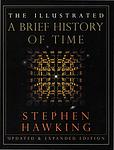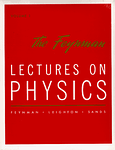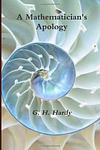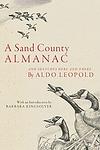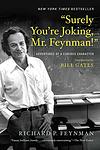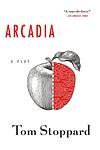The Greatest American, British "Science" Books of All Time
Click to learn how this list is calculated.
This list represents a comprehensive and trusted collection of the greatest books. Developed through a specialized algorithm, it brings together 305 'best of' book lists to form a definitive guide to the world's most acclaimed books. For those interested in how these books are chosen, additional details can be found on the rankings page.
Genres
The category of "Science" in books encompasses a wide range of topics related to the natural world, including physics, chemistry, biology, astronomy, and more. These books may explore scientific theories, discoveries, and advancements, as well as the history and philosophy of science. They may also cover practical applications of science, such as technology and medicine. Overall, the Science category offers readers a deeper understanding of the world around them and the scientific principles that govern it.
Countries
Date Range
Reading Statistics
Click the button below to see how many of these books you've read!
Download
If you're interested in downloading this list as a CSV file for use in a spreadsheet application, you can easily do so by clicking the button below. Please note that to ensure a manageable file size and faster download, the CSV will include details for only the first 500 books.
Download-
1. Silent Spring by Rachel Carson
This influential environmental science book presents a detailed and passionate argument against the overuse of pesticides in the mid-20th century. The author meticulously describes the harmful effects of these chemicals on the environment, particularly on birds, hence the metaphor of a 'silent spring' without bird song. The book played a significant role in advancing the global environmental movement and led to a nationwide ban on DDT and other pesticides in the United States.
The 61st Greatest Book of All Time -
2. On the Origin of Species by Charles Darwin
This groundbreaking work presents the theory of evolution, asserting that species evolve over generations through a process of natural selection. The book provides a comprehensive explanation of how the diversity of life on Earth developed over millions of years from a common ancestry. It includes detailed observations and arguments to support the idea that species evolve by adapting to their environments, challenging the prevailing belief of the time that species were unchanging parts of a designed hierarchy.
The 120th Greatest Book of All Time -
3. The Double Helix: A Personal Account of the Discovery of the Structure of DNA by James D. Watson
This book is a personal account of the race to discover the structure of DNA, told from the perspective of one of the co-discoverers. It provides an insider's view of scientific research, the collaboration and competition, the dedication, the doubt, the exhilaration of discovery, and the often fraught relationship between science and the rest of life. The book also explores the personalities, quirks, and conflicts of the scientists involved in the groundbreaking discovery.
The 169th Greatest Book of All Time -
4. The Structure of Scientific Revolutions by Thomas Kuhn
This influential book examines the history of science, focusing on the process of scientific revolutions. The author argues that scientific progress is not a linear, continuous accumulation of knowledge, but rather a series of peaceful interludes punctuated by intellectually violent revolutions. During these revolutions, known as paradigm shifts, the old scientific worldview is replaced by a new one. The book also popularized the term 'paradigm shift' and challenged the previously accepted view of science as a steadily progressive discipline.
The 180th Greatest Book of All Time -
5. A Brief History of Time by Stephen Hawking
A Brief History of Time is a popular science book that explores a broad range of topics in cosmology, including the Big Bang, black holes, light cones and superstring theory. The author does not shy away from complex theories and concepts, but explains them in a way that is accessible to non-scientific readers. The book also discusses the possibility of time travel and the boundaries of scientific knowledge. Throughout, the author emphasizes the ongoing quest for a unifying theory that can combine quantum mechanics and general relativity into one all-encompassing, coherent theoretical framework.
The 359th Greatest Book of All Time -
6. Principia Mathematica by Isaac Newton
This seminal work is a comprehensive exploration of classical physics, laying the groundwork for much of modern science. The author presents his three laws of motion and law of universal gravitation, effectively bridging the gap between the abstract world of mathematics and real-world phenomena. The book also delves into the principles of calculus, a mathematical discipline the author significantly developed. This work has had a profound influence on the scientific understanding of the physical universe.
The 557th Greatest Book of All Time -
7. The Selfish Gene by Richard Dawkins
This groundbreaking book presents a revolutionary perspective on the theory of natural selection. The author argues that genes, rather than individuals or species, are the true units of evolution. He suggests that these 'selfish' genes are driven by their own survival, leading to complex behaviors and characteristics in the organisms they inhabit. This work reframes our understanding of evolution, emphasizing the gene's role in shaping biological life and behavior.
The 605th Greatest Book of All Time -
8. Sexual Behavior in the Human Male by Alfred C. Kinsey
This book is a groundbreaking scientific study that provides an in-depth analysis of human male sexual behavior. It presents a comprehensive survey of male sexual activities and preferences, based on thousands of interviews and case studies. The book challenges many societal norms and taboos of its time by revealing the diversity and complexity of male sexual practices. It also explores the psychological, social, and biological factors that influence male sexuality.
The 784th Greatest Book of All Time -
9. The Man Who Mistook His Wife for a Hat by Oliver Sacks
The book is a collection of clinical tales about patients suffering from a variety of neurological disorders. The author, a neurologist, shares his experiences with these patients, whose conditions range from common ailments like amnesia and aphasia, to rare disorders like visual agnosia and Tourette's Syndrome. The stories are both compassionate and insightful, revealing the complexities of the human brain and the resilience of the human spirit, even in the face of debilitating illness.
The 785th Greatest Book of All Time -
10. Flatland: A Romance of Many Dimensions by Edwin A. Abbott
This novel is a satirical critique of Victorian society told through a two-dimensional world known as Flatland, inhabited by geometric figures. The protagonist, a square, guides the reader through his society, explaining its rigid class structure, before being visited by a three-dimensional sphere. The sphere introduces him to the concept of the third dimension, challenging the Square's understanding of his own world. The story then explores themes of perception, dimensions, and the limitations of understanding and knowledge.
The 787th Greatest Book of All Time -
11. The Mismeasure of Man by Stephen Jay Gould
The book is a critical analysis of the history of scientific racism and biological determinism, the belief that social and economic differences among human races, sexes, and classes are inheritable, inevitable, and natural. It challenges the idea that intelligence can be measured accurately and placed in a single, linear scale. The author refutes the arguments of those who support these theories, arguing that they are based on flawed methodologies, biased data, and unverifiable assumptions. Instead, he proposes that intelligence is multifaceted and cannot be quantified simplistically.
The 812th Greatest Book of All Time -
12. The Feynman Lectures on Physics by Richard P. Feynman
This book is a comprehensive collection of lectures on physics by a renowned physicist, covering everything from classical mechanics to quantum mechanics, electromagnetism, and statistical mechanics. These lectures, designed to be accessible to those without a deep background in the subject, offer a unique and insightful perspective on the fundamental principles of physics, combining rigorous scientific explanation with engaging anecdotes and analogies. The book is widely regarded as an essential resource for anyone interested in or studying the field of physics.
The 813th Greatest Book of All Time -
13. Desert Solitaire by Edward Abbey
Desert Solitaire is a collection of vignettes about life in the wilderness that reflects on the fierce beauty of the desert, the cruel indifference of nature, and the reckless destruction of the American West. The book, based on the author's experiences as a park ranger in Utah, explores the spiritual and philosophical dimensions of the desert environment, critiquing the commercialization and urbanization of the wild, and underscoring the importance of preserving natural landscapes.
The 828th Greatest Book of All Time -
14. The Making of the Atomic Bomb by Richard Rhodes
This comprehensive book provides an in-depth account of the development of the atomic bomb during World War II. It explores the scientific advancements that made the bomb possible, the political decisions that led to its creation, and the moral dilemmas faced by the scientists involved. The book also details the personalities of key figures in the Manhattan Project, the effects of the bomb on Hiroshima and Nagasaki, and the impact of nuclear weapons on the world.
The 840th Greatest Book of All Time -
15. The Worst Journey in the World by Apsley Cherry-Garrard
"The Worst Journey in the World" is a gripping account of the Terra Nova Expedition to the South Pole in 1910-1913. The book vividly describes the perilous journey undertaken by a team of explorers, their struggles with brutal weather conditions, and the tragic loss of their leader and four other members on their return from the Pole. The narrative is not only about physical survival in harsh conditions, but also about the psychological toll of such an expedition, making it a timeless testament to human endurance and spirit.
The 896th Greatest Book of All Time -
16. The Voyage of the Beagle by Charles Darwin
This book is a vivid and exciting travel memoir as well as a detailed scientific field journal covering biology, geology, and anthropology that demonstrates the author’s keen powers of observation, written at a time when Western Europeans were still discovering and exploring much of the rest of the world. The author's five-year journey took him from the coasts of South America, Australia, and Africa to the South Pacific islands, during which he collected and documented the natural history of these areas. The voyage and the specimens he brought back would later form the basis for his famous theory of evolution.
The 1040th Greatest Book of All Time -
17. Gödel, Escher, Bach by Douglas Hofstadter
The book explores concepts of formal systems, recursion, self-reference, and infinity through the interdisciplinary lens of mathematics, art, and music. The narrative intertwines biographical sketches of the titular figures - a mathematician, an artist, and a composer - with dialogues and discussions to illustrate complex ideas. The author uses these figures as metaphors to delve into the nature of human cognition and consciousness, suggesting that our minds are essentially self-referential systems akin to the works of Gödel, Escher, and Bach.
The 1056th Greatest Book of All Time -
18. Guns, Germs, and Steel by Jared Diamond
The book is a comprehensive exploration of the different trajectories of human societies throughout history. It argues that environmental factors, rather than racial or cultural differences, are the primary reason why some societies developed more advanced technology and political systems. The author uses a multidisciplinary approach, drawing from fields such as geography, evolutionary biology, and linguistics, to support his thesis. The book covers a wide range of topics, including the domestication of plants and animals, the invention of writing, and the spread of diseases.
The 1140th Greatest Book of All Time -
19. A Mathematician's Apology by G. H. Hardy
"A Mathematician's Apology" is a deeply personal reflection on the beauty and importance of pure mathematics. The author, a renowned mathematician, defends the pursuit of mathematics for its own sake, arguing it's a creative art form akin to poetry or painting. The book provides insight into the mind of a working mathematician and the aesthetic appeal of mathematics, while also discussing its practical utility and the author's own work on number theory and the theory of prime numbers.
The 1236th Greatest Book of All Time -
20. A Sand County Almanac by Aldo Leopold
This book is a compilation of nature-related essays that highlight the author's experiences and observations as a conservationist. The author provides a thoughtful and eloquent reflection on the relationship between land and people, emphasizing the importance of conservation and sustainability. Through his writings, he advocates for a 'land ethic' where humans view themselves as part of the natural community rather than conquerors of it, promoting a harmonious coexistence with nature.
The 1342nd Greatest Book of All Time -
21. "Surely You're Joking, Mr. Feynman!": Adventures of a Curious Character by Richard P. Feynman
The book is an autobiography of a Nobel Prize-winning physicist, filled with humorous and insightful anecdotes from his life. It highlights his adventures from his early years, working on the Manhattan Project, to his teaching years at Caltech. The book showcases his unconventional thought process, his insatiable curiosity, and his passion for science, painting a vivid picture of a man who never stopped questioning and learning.
The 1383rd Greatest Book of All Time -
22. Arcadia by Tom Stoppard
"Arcadia" is a play that intertwines two timelines, set in the same English country house but centuries apart. In the early 19th century, a gifted young girl and her tutor delve into intellectual pursuits, exploring mathematics, nature, and the early inklings of chaos theory, while around them, the adults engage in witty repartee, romantic entanglements, and poetic rivalries. In the present day, scholars and descendants of the house's historical residents attempt to piece together the past, often misinterpreting the evidence they find. The play explores themes of time, truth, and the impact of the past on the present, all while showcasing the enduring nature of human curiosity and the quest for knowledge.
The 1426th Greatest Book of All Time -
23. The Problems of Philosophy by Bertrand Russell
This book is an introduction to the central issues of philosophy, discussing topics such as reality, existence, knowledge, freedom, and ethics. It seeks to promote critical thinking and skepticism, encouraging readers to question their own beliefs and the world around them. The author uses clear and accessible language to explain complex philosophical concepts, making it an ideal starting point for those new to philosophy.
The 1448th Greatest Book of All Time -
24. The Immortal Life of Henrietta Lacks by Rebecca Skloot
The book tells the story of Henrietta Lacks, a poor African American tobacco farmer whose cells, taken without her knowledge in 1951, became one of the most important tools in medicine, vital for developing the polio vaccine, cloning, gene mapping, and more. Henrietta's cells have been bought and sold by the billions, yet she remains virtually unknown, and her family can't afford health insurance. The book explores the collision between ethics, race, and medicine; of scientific discovery and faith healing; and of a daughter consumed with questions about the mother she never knew.
The 1456th Greatest Book of All Time -
25. The Natural History and Antiquities of Selborne by Gilbert White
"The Natural History and Antiquities of Selborne" is an exploration of the natural world in the English village of Selborne. The author, through a series of letters, provides detailed observations and insights into the flora, fauna, weather and geology of the area. The book also sheds light on the history and antiquities of the village, offering a comprehensive view of Selborne during the 18th century.
The 1562nd Greatest Book of All Time
Reading Statistics
Click the button below to see how many of these books you've read!
Download
If you're interested in downloading this list as a CSV file for use in a spreadsheet application, you can easily do so by clicking the button below. Please note that to ensure a manageable file size and faster download, the CSV will include details for only the first 500 books.
Download



